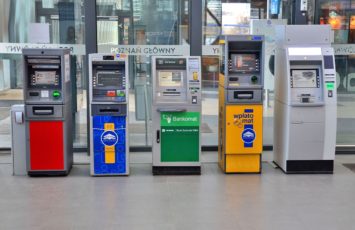Credit cards are excellent tools for us to use when we are in a bind, they will usually provide us with funds to keep us going until things get better. However, what happens when things do not get better and there appears to be no light at the end of the tunnel, will we have a secondary option to help us get out of debt? You may think that if you do not attempt to pay that bill, for whatever reason, it will go away. It is possible that it will leave the credit balance, but do not expect it to just go away.
What is a charge-off?
The most important thing for you to keep in mind is that a charge-off is the credit card or financial institutions attempt to clear their books from showing a balance owed by you which they don’t believe you will pay through normal communication. This balance will also reflect negatively on them when they put together their assets, so a charge-off will not help you; in fact, it could very well do the exact opposite. It is important to realize that the debt still exists, and you will continue to be liable for it.
What happens next?
Wouldn’t it be great if the creditor decided to be nice and relieve you of the responsibility of that debt? It would be, but do not expect them to! This is where the heat gets turned up and the debt is passed on to a collection agency, in fact, do not be surprised to be contacted by several different agencies before it is all said and done. The bigger the balance, the greater the intensity to collect those funds, so if one agency tries to collect it and fails, another one will pick up and attempt for themselves.
Will this affect my credit rating?
When you borrow money from someone, and you are unable to pay them back, the Fair Reporting Credit Act, otherwise known as FRCA, allows for the creditor to report your history with them to the major credit monitoring agencies, such as Experian, Equifax, and TransUnion. Once this information reaches there, any attempt you make at getting a loan will pick it up. Mortgage companies and anyone who might have financed you for a new or used car will see that information, and the outcome will go one of two ways. Either you will be approved at a high interest rate, or your credit application will be turned down.
Is it possible to fix the consequences?
Considering the fact that this will be an unsatisfied debt, you should expect the same response to any other credit related problems that people experience when bills are not paid. Your credit will be affected for a period of seven years and during that time, it will be difficult to get things back to the way they were. If you already own a home and a car, continue making your payments in a timely manner. This will show other creditors that you are at least trying to get back in the game.
Get Started With a Free Debt Analysis
We make it easy on mobile or desktop. FREE with no obligations.
In many cases, if this is the only credit problem that your report shows, it is possible to get some kind of headway when you are halfway through the seven-year period. The solution to the problem is of course not to allow yourself to reach the “charge-off” stage; however, that may be easier said than done.
If you have questions about possible charge-offs or unsecured debts, give us a call today! The call is totally free and completely confidential. We can explain different terminology that might be confusing to you and we can help you create a budget. Visit us at www.advantageccs.org for more information!
